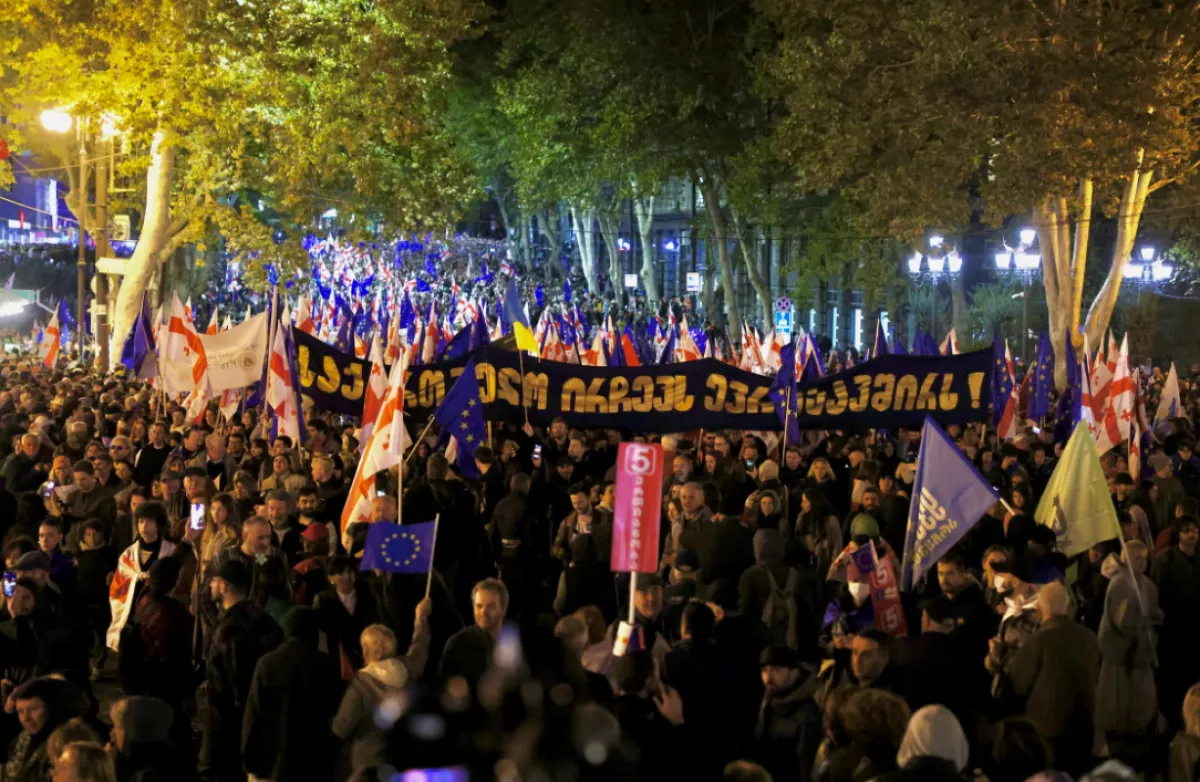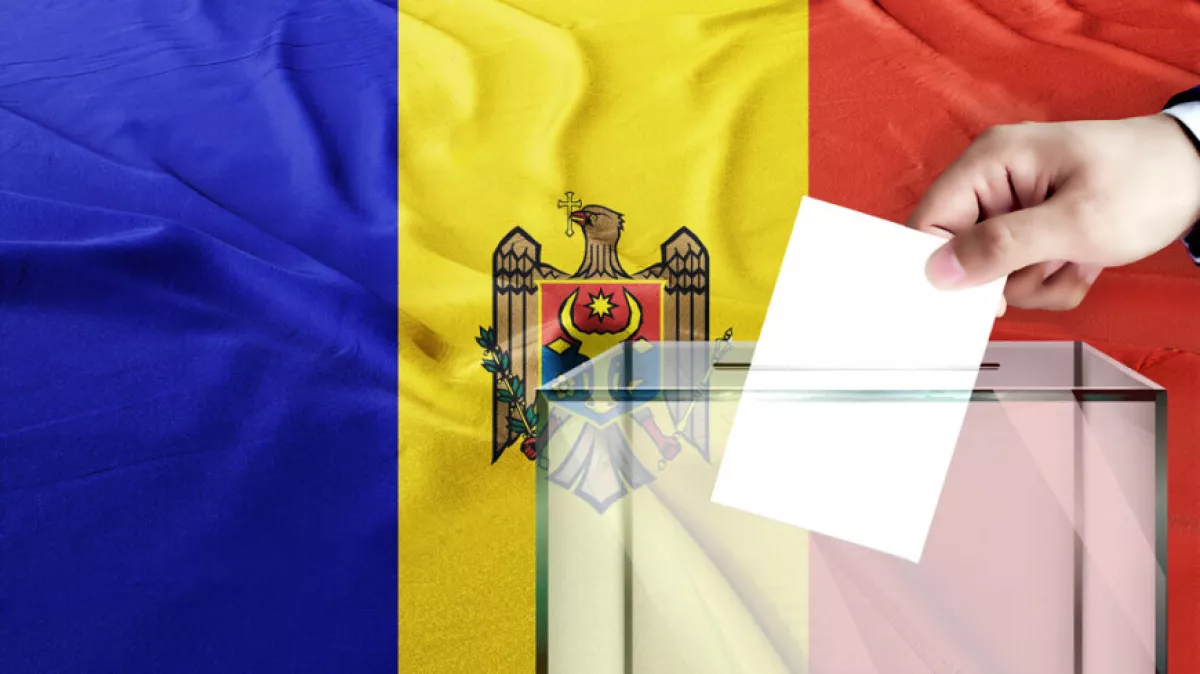Moldova and Georgia: Early signs of disillusionment with Europe Euroscepticism among candidates
October 20, 2024, may go down in history as a "significant day" concerning the geopolitical aspirations of certain post-Soviet countries. On this day, it became evident that the "European idea" is losing popularity in countries that have received candidate status for EU membership—Georgia and Moldova.
Despite the participation of current President Salome Zourabichvili in the "Georgia Chooses the EU" rally in Tbilisi, the turnout was clearly much lower than what the organizers had anticipated. Initially, it was expected that the majority of participants would be young people; however, footage from Tbilisi taken on October 20, 2024, at the start of the "Georgia Chooses the EU" march revealed that a significant portion of the attendees consisted of middle-aged and elderly individuals, easily identifiable as "professional" party functionaries and activists transported from across Georgia.
Young people began to gather in central Tbilisi as darkness fell, but it seemed they were drawn more by the opportunity for evening entertainment than by the ideas of Euro-integration. The relatively cool autumn weather also contributed to a decrease in the number of participants, resulting in the pro-European opposition demonstration being far less attended than the peak of the spring protests against the "foreign agents" law. Operators from the opposition and Western media had to choose their "angles" carefully to capture the image of a "thousands-strong unity of the Georgian people for a European choice." However, even the most "carefully selected" footage from Freedom Square in Tbilisi revealed that the streets adjacent to the square were nearly empty during the height of the "pro-European" rally. This is a telling signal for the pro-Western opposition, as its supporters are often even less willing to go to polling stations than to attend protests.

However, even more telling were the presidential elections and the referendum on Euro-integration that took place on the same day in Moldova. Just 2–3 months ago, most analysts predicted a decisive victory for the pro-European incumbent President Maia Sandu in the first round, as well as a strong majority in favour of amending Moldova’s Constitution to include provisions for the country’s aspirations to join the EU. However, the voting results turned out to be unexpected. With nearly 98% of the votes counted, the pro-European President Maia Sandu received only 42%, while her closest competitor, former Prosecutor General Alexander Stoianoglo, garnered 26.36%. Despite the EU's propaganda and support, Sandu clearly failed to secure victory in the first round.
The results of the referendum on Moldova's Euro-integration were even more revealing. After processing 98% of the ballots, only 49.89% of voters supported the inclusion of a European orientation in the Constitution, while 50.11% voted against it. However, following this, a powerful DDoS attack targeted the Central Election Commission's website, allowing proponents of Euro-integration to slightly gain the lead at 50.4%. In pre-referendum polls, over 55% supported Moldova's course toward the EU, with around 35% opposing it. Thus, the "strained" result of 50% in favour of Euro-integration, with nearly the same percentage against, clearly indicates a defeat for pro-European and pro-Western forces in Moldova.
Alexander Stoianoglo, who is advancing to the second round of elections as a candidate from the Socialist Party of Moldova, is running in the elections while the party leader, former President Igor Dodon, has chosen not to participate this time due to his significant unpopularity. Stoianoglo is of Gagauz nationality and previously ran as an independent candidate for the position of governor (bashkan) of the autonomous region of Gagauzia twice: in 2006, he received 6,025 votes (10.58%), which was insufficient to advance to the second round; in 2015, he garnered 3,174 votes (4.98%), again failing to progress.
Since taking office as Moldova's Prosecutor General in 2019, Stoianoglo's visibility and popularity have surged, as he has established himself as a steadfast anti-corruption figure within the upper echelons of Moldovan power. He has been in conflict with Maia Sandu since she became president, ultimately leading to his removal from the position of Prosecutor General due to her efforts. Stoianoglo is also known for his Euroscepticism, support for the Orthodox Church and traditional values, and advocates for deeper cooperation between Moldova and the Eurasian Economic Union (EAEU) countries.

The advancement of Gagauz Turk Alexander Stoianoglo to the second round of presidential elections in the Republic of Moldova, along with his strong chances of becoming the country's president, points to a notable trend of "Turkic renaissance" in countries where non-Turkic populations dominate. Recently, an Azerbaijani, Masoud Pezeshkian, was also elected president of Iran. While this may be seen as a "coincidental occurrence," there is a tangible movement in Eurasia toward establishing a Turkic axis of states, which is attracting the attention of countries with predominantly non-Turkic populations.
Turks in leadership positions within such states are perceived by the populace as a favourable factor for fostering closer and mutually beneficial cooperation with the dynamically evolving Turkic world.
Undoubtedly, eurosceptics voted for Alexander Stoianoglo. Considering the results of the referendum on Euro-integration, where supporters of Europe had to "stretch and manipulate" the votes in their favour, it is reasonable to assume that Stoianoglo will receive significantly more votes in the second round of the presidential elections than in the first.
The outcomes of the first round of presidential elections and the referendum in Moldova indicate that Euroscepticism is beginning to dominate the sentiments of the populations in countries with candidate status for EU membership. There is a possibility that similar trends will emerge in the voting in Georgia on October 26, 2024. While elections and referendums have not yet been conducted in Ukraine, which holds the same candidate status for EU membership, euroscepticism is also reportedly on the rise here, as reflected in social media commentary.
All of this provides the Georgian Dream party with a strong chance of winning the parliamentary elections on October 26, 2024. However, it will be even more crucial for the ruling Georgian party to "legitimize" and maintain its likely victory, as the pro-Western opposition is preparing to refuse to acknowledge its defeat and may attempt to implement a forceful "street-maidan" scenario for a change of power.
Vladimir Tskhvediani, Georgia, for Caliber.Az








